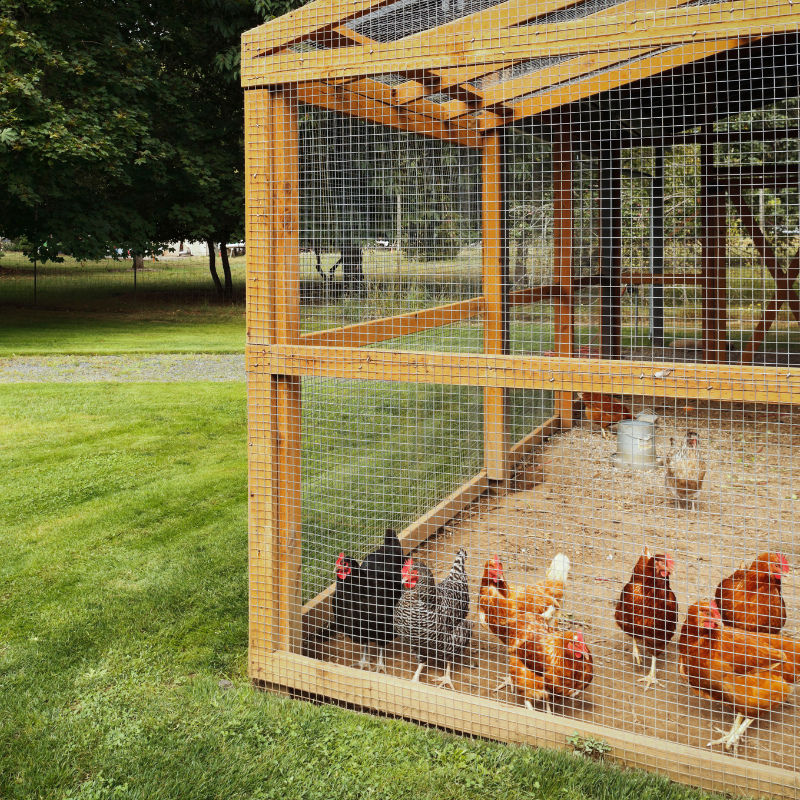Choosing the right materials for your chicken coop is a critical decision that can impact the health, safety, and comfort of your feathered friends. With a variety of options available, from traditional wood to modern plastics and metals, it's essential to understand the characteristics and considerations of each material to make an informed choice for your flock. In this article, we compare different chicken coop materials and offer insights into selecting the best one for your specific needs.
Wood:
Wood is a classic and popular choice for chicken coop construction, prized for its natural aesthetics, insulation properties, and ease of customization. Common types of wood used for coops include cedar, pine, and fir, each with its own set of advantages and considerations. Cedar is naturally resistant to rot and insects, making it a durable option for outdoor use, while pine and fir offer affordability and availability. When using wood for your coop, ensure that it is untreated or treated with non-toxic finishes to prevent harm to your chickens. Additionally, regular maintenance, such as sealing and painting, can prolong the lifespan of wooden coops and enhance their durability.
Plastic:
Plastic chicken coops have gained popularity in recent years due to their durability, low maintenance requirements, and resistance to rot and pests. Made from high-density polyethylene (HDPE) or similar materials, plastic coops are lightweight, easy to clean, and resistant to harsh weather conditions. They are also less susceptible to moisture damage compared to wooden coops, making them an ideal choice for humid climates or areas prone to heavy rainfall. While plastic coops may have a higher upfront cost than wooden counterparts, their long-term durability and minimal upkeep make them a cost-effective investment for poultry owners.
Metal:
Metal chicken coops, typically constructed from galvanized steel or aluminum, offer strength, durability, and protection against predators. Galvanized steel coops are coated with zinc to prevent corrosion and rust, making them suitable for outdoor use in all weather conditions. Aluminum coops, known for their lightweight nature and resistance to rust, are ideal for portable or temporary setups. Metal coops provide superior security and longevity compared to wooden or plastic alternatives, but they may be more expensive and less insulating in extreme temperatures. Additionally, metal coops may require additional ventilation to prevent overheating during hot weather.
When selecting materials for your chicken coop, consider factors such as durability, insulation, maintenance requirements, and budget. Wood offers natural aesthetics and insulation but requires regular maintenance to prevent rot and deterioration. Plastic provides durability and low maintenance but may have a higher initial cost. Metal offers superior security and longevity but may be more expensive and less insulating. By carefully evaluating the pros and cons of each material and aligning them with your specific needs and preferences, you can choose the right coop material to provide a safe, comfortable, and healthy environment for your flock.

